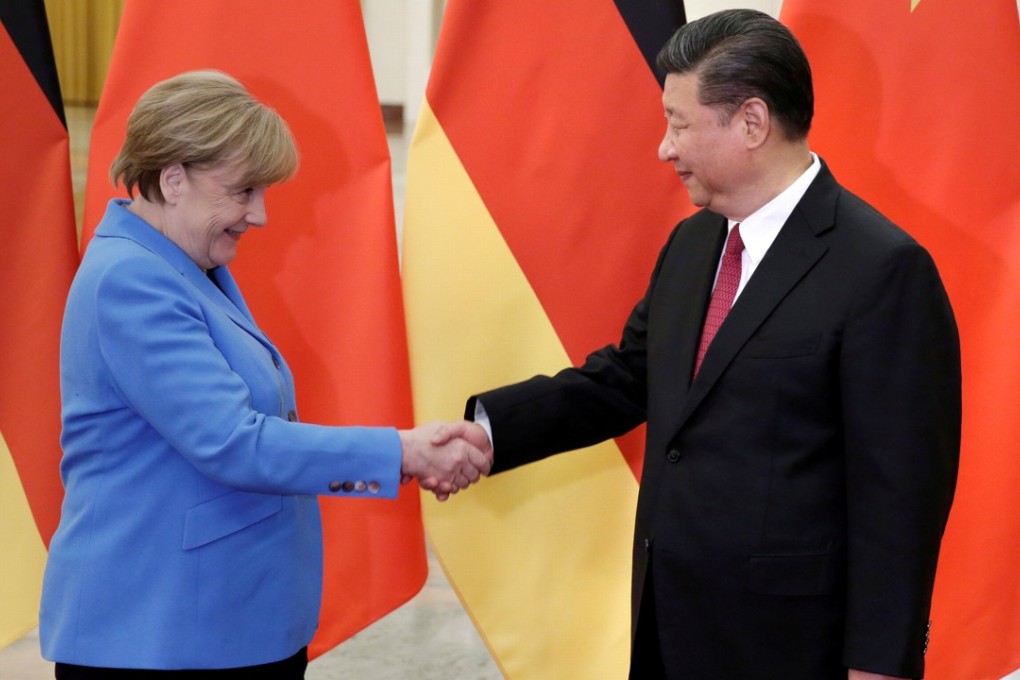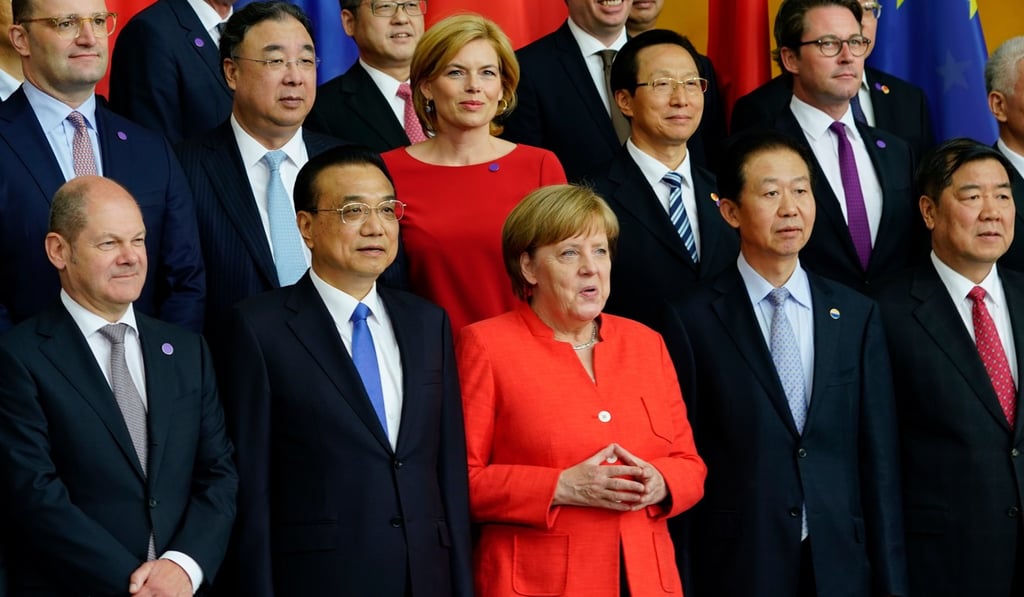Abacus | US tariffs make China and Germany allies – until they’re not
Chancellor Angela Merkel has been a frequent flier to Beijing of late as both nations discuss how to address their trade wars with Washington, but don’t expect the accord to last

It has been said that the “enemy of my enemy is my friend”. It is this rationale that propels China and Germany to ally themselves in their common trade spat with the United States.
US-China trade war: who wins, who loses?
Merkel’s 11 visits to China in her 12 years as chancellor have not only outnumbered any of her European trips, but have also exceeded those by three French presidents (Jacques Chirac, Nicolas Sarkozy and Francois Hollande) and three UK prime ministers (Tony Blair, Gordon Brown and David Cameron) combined.

Thus her visit to China and Li’s just-concluded reciprocal trip were widely watched. Berlin and Beijing share a vast bilateral and multilateral agenda on a range of vital global issues. They shared their opposition to Trump’s decision to pull out of the Iran nuclear deal. All signatories of that deal – China, Germany, the UK, France and Russia – opposed Trump’s abrupt and unilateral action. They also opposed Trump’s withdrawal from the Paris climate change agreement and his decision to move the US embassy in Israel from Tel Aviv to Jerusalem.
